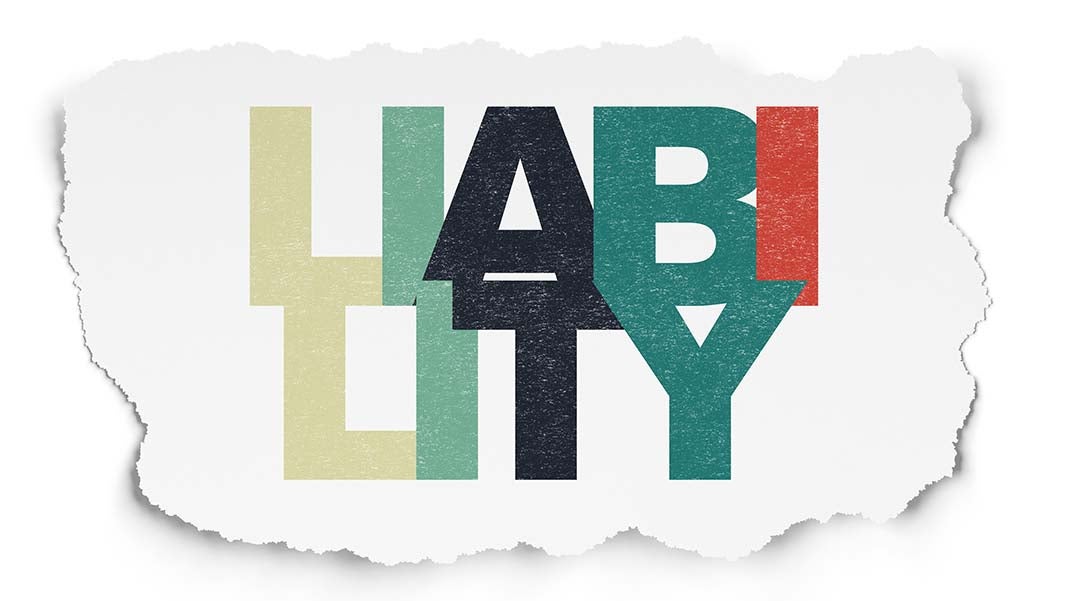General Liability Insurance for Business: What It Does and Doesn’t Cover
By: Wagepoint

As a small business owner, you may have been tempted to throw your hands up in frustration at the intricacies of insurance. It sometimes seems like the entire point of insurance policies is to make sure no one ever actually makes a claim.
As you look through the list of policy exclusions and restrictions, you might feel like there’s no point in paying for insurance each month or quarter — after all, there are so many things not covered that you have no idea what is covered.
The reason we’ve written this article is to help you make sense of what you’re buying. By the end of it, you’ll understand, in plain, straightforward language, some of the most common exclusions in general liability policies. No matter what profession you’re in, many of these exclusions will apply.
That being said, if you’re buying insurance and your agent tells you something different from what you’re reading here, trust your agent! Similarly, if you know that some of these exclusions could cause serious problems for your business, ask your agent if there are riders or add-on products that might help you get more fully covered.
The first thing to understand is this:
Who is “An Insured”?
When you purchase liability insurance for your business, you’ll see that the policy refers to “the insured.” Who, exactly, is an insured? Does it cover just the person on the policy? Does every individual need to be named in order to be covered? What about family members? Are subcontractors or independent contractors covered? After all, if you think someone is covered under your policy, and they actually aren’t, that could put both yourself and that person at risk.
Who qualifies as insured for the purposes of liability insurance?
In general, “An Insured” will be:
- The named insured (usually the person purchasing the insurance).
- Their spouse.
- Their partners and their spouses, if the business is a partnership, or members if the business is an LLC.
- Employees of the business.
“An Insured” is not:
- Family members who work for the business, but do not qualify as employees, are often excluded from liability insurance coverage.
- Day laborers, who generally do not meet the qualifications to be employees under Labor Codes.
- Subcontractors and independent contractors (who are often required to carry their own liability insurance).
If you’re unsure if someone will be covered under your policy, talk to your insurance agent. It’s much better to know ahead of time that someone will or won’t be included than to find out after the fact.
Why You Need General Liability Insurance (Even With Exclusions)
All too often, businesses decide to forgo insurance in order to lower their overhead costs. While this may be a short-term necessity, it is never a good long-term plan. Despite exclusions and restrictions, liability insurance covers many crucial business vulnerabilities, such as:
- Lawsuits, investigations, and settlements. If your business is sued, liability insurance can cover attorney fees, settlements, and judgments.
- Injury damages. If someone (not an employee) is hurt on your property or your job site, liability insurance may help to pay damages.
- Miscellaneous damages. Liability insurance can cover a wide range of unexpected damages, such as if a company accidentally violates a copyright with advertising, and needs to pay fees.
Common Exclusions — What’s Typically Not Covered by General Liability Insurance
It doesn’t matter what work your business does — certain exclusions are common across most insurance policies. Sometimes items are excluded because they should be covered by other insurances that you should carry, like workers’ compensation or an insurance policy on your physical space. Other times insurance companies have decided, across industries, not to pay for particular situations.
What are some of the things that general liability insurance won’t cover? These are some common exclusions:
Contractual Liability
If your business takes on a contract, and the contract requires you to pay for some sort of liability or says that the other person won’t be liable, your liability insurance won’t cover any damages. For example, contractors may do work for a town or municipality. They will often sign a contract which agrees to hold the municipality harmless for any accidents that happen on the job. If the contractor then has a loss or accident on the job, the municipality cannot be sued.
Because the business owner signed a contract saying that the other party can’t be held liable, liability insurance probably won’t pay for this either. There are a few situations where this may not apply, including:
- A contract that relates to a lease of premises.
- A sidetrack agreement.
- A license or easement agreement, unless it relates to demolition or construction within 50 feet of a railroad.
- Some indemnity obligations of municipalities.
- Elevator maintenance agreements.
- Tort liability issues.
Independent Contractors
Liability insurance will not cover damages or bodily harm for either independent contractors or subcontractors when they are injured in your workplace.
Not sure whether the people working for you are employees or independent contractors? Use this guide from the IRS to be sure. Properly classifying these workers is important for more than just liability insurance. In fact, the Department For Professional Employees estimates that millions of workers are misclassified each year. If your company misclassifies your workers, you could face stiff legal penalties.
In terms of liability insurance, misclassifying employees could lead to not being able to claim damages that would otherwise be covered under liability insurance. Your company may have chosen to work primarily with independent contracts because this reduces labor costs (since you don’t have to pay social security and unemployment insurance). But, you may be opening your business up to substantial risk. If the contractor causes damages, your liability insurance may not cover it, leaving you responsible for the costs.
Employer’s Liability
In general, the employer’s liability exclusion has to do with employees who get hurt on the job. This is why companies usually have to carry workers’ compensation insurance.
Subcontractors and independent contractors are at the greatest risk because of this exclusion. In some situations, courts have decided that subcontractors can sue contractors if they are injured on the job. This means that you could be on the hook for someone’s medical expenses, without help from your insurance policy. This is why many companies in the construction sector demand that their subcontractors carry their own insurance.
Damage to Your Work
If you cause damage to your own work in the course of doing your work, it can’t be covered by general liability insurance. This often comes into play for contractors, who may be held liable for third parties who are injured due to work that was completed improperly. For example: If a contractor works on a home, putting up siding, and the siding falls off — the contractor can be held liable through normal channels for the damage done to the siding and the building itself.
If a subcontractor was responsible for the work done, it is often covered by a general liability policy issued to the subcontractor. Similarly, if the siding fell off the building and injured someone, that claim might also be covered.
Professional Services
If a doctor injures a patient, their general liability policy would generally not cover the claim — after all, a doctor will usually have malpractice insurance. This is true for many professionals, who often carry something called “errors & omissions” insurance (or E&O).
If, however, a client slips and falls in an office, general liability insurance may pay for treatment related to the client’s broken leg.
Cross Suits
A cross suit happens when two parties under the same insurance policy are suing each other. For example: If your business assembles a product made from third-party components and the product fails and causes injury due to a flaw a third-party component— you could attempt to sue the third party. If your general liability policy has this exclusion, it won’t pay out damages.
Some policies allow for cross-liability coverage; however, you need to be careful and know what your insurance will cover. Then, you can prepare for different contingencies and have plans in place to minimize any damage.
Damage to Property
In general, damage to property that you own, rent, or lease, is not covered under a general liability policy. Like other exclusions listed above, this is because business owners are expected to have property insurance or renters insurance that will cover them against these kinds of damages.
Why It’s Important To Understand What Each Type of Insurance Does
If you, as a business owner know where to direct employees and clients regarding various problems, you’ll have better morale and improve company satisfaction. Also, if there is a disaster or other serious event, you’ll save time and frustration by knowing exactly who to call to get financial help. Responding quickly can help businesses keep their good reputations and maintain a steady income even after suffering damages.
How to Learn More About Your Business Insurance Policies
If you have any questions about your any of your insurance policies, the best person to talk to is your insurance agent. Since they are the ones who sold you the policy, they should know the specific details of what will be covered and what will not be. They can walk through your business’s day to day operation and help you understand any places that your business is vulnerable, and what can be done to mitigate those potential damages.
If you are having trouble connecting with your insurance agent, another option might be to consult with your local Chamber of Commerce or Small Business Administration (SBA) chapter. Since these organizations work with owners and CEOs of many different small businesses, they often have insight into how these exclusions affect businesses.
How do you feel about business insurance? What do you want to know? What do you wish you had known before? Tell us more in the comments.
We’d like to thank Business Insurance USA for this helpful overview of general liability insurance, especially what it covers and doesn’t.
 Author: Sam Meenasian is the Operations Director of USA Business Insurance and BISU Insurance and an expert in commercial lines insurance products. With over 10 years of experience and knowledge in the commercial insurance industry, Meenasian contributes his level of expertise as a leader and an agent to educate and secure online business insurance for thousands of clients within the Insurance family.
Author: Sam Meenasian is the Operations Director of USA Business Insurance and BISU Insurance and an expert in commercial lines insurance products. With over 10 years of experience and knowledge in the commercial insurance industry, Meenasian contributes his level of expertise as a leader and an agent to educate and secure online business insurance for thousands of clients within the Insurance family.














